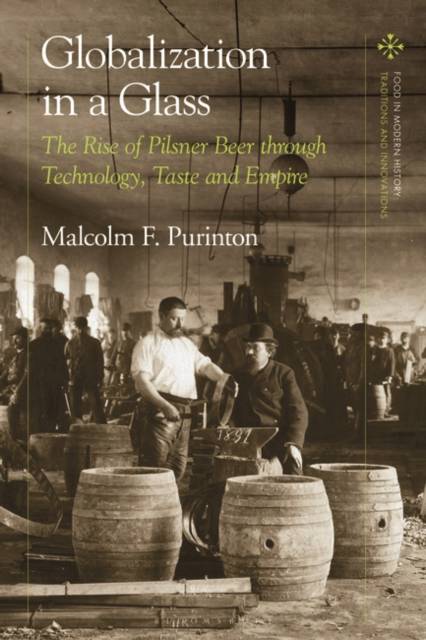
- Afhalen na 1 uur in een winkel met voorraad
- Gratis thuislevering in België vanaf € 30
- Ruim aanbod met 7 miljoen producten
- Afhalen na 1 uur in een winkel met voorraad
- Gratis thuislevering in België vanaf € 30
- Ruim aanbod met 7 miljoen producten
Globalization in a Glass
The Rise of Pilsner Beer Through Technology, Taste and Empire
Malcolm F PurintonOmschrijving
The spread of Pilsner beer from its inception in 1842 clearly shows the changes wrought by globalization in an age of empire. Its rise was dependent not only on technological innovations and faster supply chains, but also on the increased connectedness of the world and the political and economic structures of empire. Drawing upon a wide range of archival sources from Europe, the Americas, and Sub-Saharan Africa, this study traces the spread of industrial beer brewing in Europe from the late 18th to the early 20th century to show how a single beer style became the global favourite through advances in science, business and imperial power.
In highlighting the evolution of consumer tastes through changing hierarchical relationships between the British metropole and colonies, as well as the evolution of business organizations and practices, Globalization in a Glass contributes to ongoing debates about globalization, empire, and trade. It argues that, despite the might and power of the British Empire as a colonizing force, the effects of globalization, imperial trade networks, and colonial migration led to the domination of the most popular Continental European style of beer, the Pilsner, over British-style ales.Specificaties
Betrokkenen
- Auteur(s):
- Uitgeverij:
Inhoud
- Aantal bladzijden:
- 192
- Taal:
- Engels
- Reeks:
Eigenschappen
- Productcode (EAN):
- 9781350324374
- Verschijningsdatum:
- 1/06/2023
- Uitvoering:
- Hardcover
- Formaat:
- Genaaid
- Afmetingen:
- 156 mm x 234 mm
- Gewicht:
- 444 g

Alleen bij Standaard Boekhandel
Beoordelingen
We publiceren alleen reviews die voldoen aan de voorwaarden voor reviews. Bekijk onze voorwaarden voor reviews.







